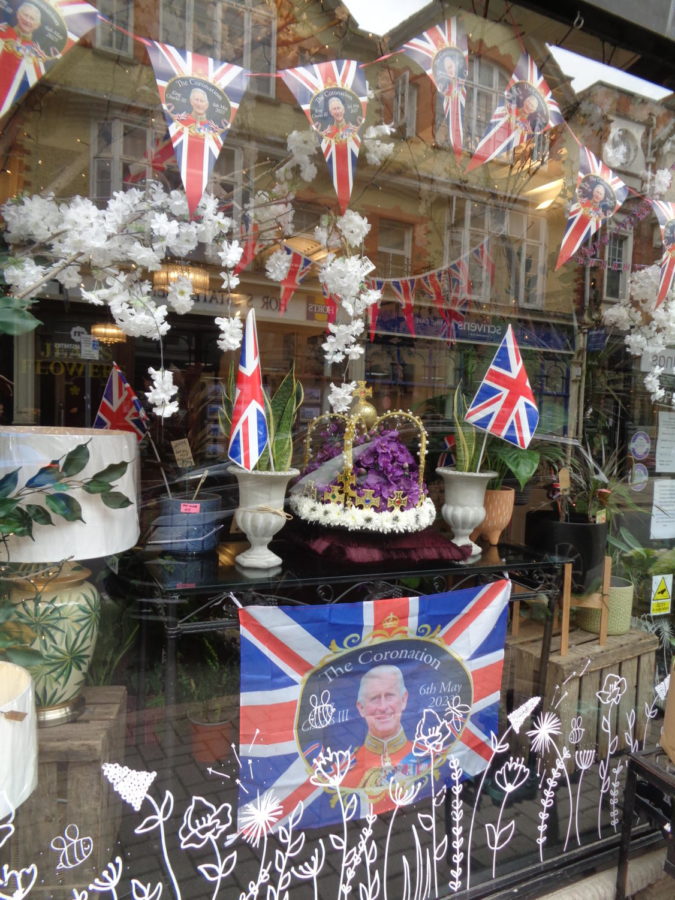British Monarchy still has value, but how long will it last?
May 11, 2023
This past Saturday saw the coronation of the newest monarch of the U.K., the first British coronation in 70 years. King Charles III was crowned in a deeply religious ceremony, involving music, jewels, and many tedious steps, all with visiting royals and representatives from other countries watching. While the Victoria Memorial and surrounding areas were flooded with people excited to see King Charles III’s first appearance on the balcony of Buckingham Palace, the lavish and ceremonious processes of coronation day has left some people wondering; is the royal family of the United Kingdom conceptually outdated, or is it worthy of the expensive traditions dedicated to it?
In the United Kingdom, the older generations show much more support for the royal family. Despite a majority of citizens aged 65 and above happily supporting the British monarchy, the younger end of the population seems to generally support an elected head of the nation over a monarch assigned by birth rather than merit. This more logical approach to leadership is why the United Kingdom has a Prime Minister, though, and the royal family is not technically supposed to engage heavily in political discourse.
If the royal family is not to lead the country politically, then what purpose do they serve?
As the role listed on the official website of the monarchy is described, “The Sovereign acts as a focus for national identity, unity, and pride; gives a sense of stability and continuity; officially recognizes success and excellence; and supports the ideal of voluntary service.” In essence, the royal family is there to inspire and bring together the British, and even occasionally global, audiences.
This aspect of the job they are quite well known for. With the national anthem and currency paying homage to the reigning monarch, they become an integral part of everyday life for Britons. And the fact that they typically avoid speaking out on more controversial topics, or outright avoid non-military related politics, means that any political divides in the country do not extend far enough to break the unity caused by the royals. Their faces are printed on flags, playing cards, postage stamps, posters, and more. They do charity work, and generally work hard to keep up their images (with a few exceptions, as some members of the royal family are ridden with controversy and scandal). When it comes to creating national unity, the United Kingdom’s constitutional monarchy provides a perfect common ground.
However, despite the elected Prime Minister having the most legislative power, there are still fewer superficial responsibilities for the royal family rather than just posing as a figurehead for the country. Many of the former rights held by the monarchy have since been transferred to parliament entirely, for example, the right to impose and collect new taxes. Despite this, the reigning monarch still has the power to make some more politically motivated decisions. The most influential decisions that can be made politically by the royal family include: regulating civil service, declaring war, making peace, directing actions of the military, and negotiating treaties, alliances, and international agreements.
This means that most of the role the reigning monarch has is in relation to the military and garnering public support.
On the same page of their official website, they make it clear that the Head of State “no longer has a political or executive role”, and instead laws and regulations are passed through an elected parliament. The parliament is what passes and creates laws, which is what makes the United Kingdom a constitutional monarchy.
So, as many powers formerly held by the monarchy have been transferred into powers of parliament, what is preventing the rest of these powers from being switched over? After all, the money that supports the royal family and their luxurious lifestyle comes from the British people.
Although the prices for King Charles III’s recent coronation were not shared, the estimated cost is said to lie between 125 and 126 million U.S. dollars. Surprisingly, despite this massive cost, the boost to the economy generated by increased spending is suspected to provide a net gain for the general economy. After all, support for the monarchy still holds a majority over British citizens, and as this is the first coronation in 70 years, many are going all out celebrating, thus spending money and boosting the economy.
So, from an outside perspective, it seems foolish to have a constitutional monarchy rather than just transferring all the powers to the parliament. Even still, the unity provided to the United Kingdom by having a royal family to support, cheer for, and (for the most part) be proud of, gives the monarchy much more merit. And most importantly, the British monarchy is widely supported, with most of the country in favor. Perhaps the public will have a different opinion of King Charles III, after so long under the reign of Queen Elizabeth II, but unless the approval rate for the sovereignty goes down considerably, it seems it is still a worthy cause for the country.































BritishMonarchyLover123 • May 12, 2023 at 12:07 pm
very very good, I say. 10/10, quite swell, very good.